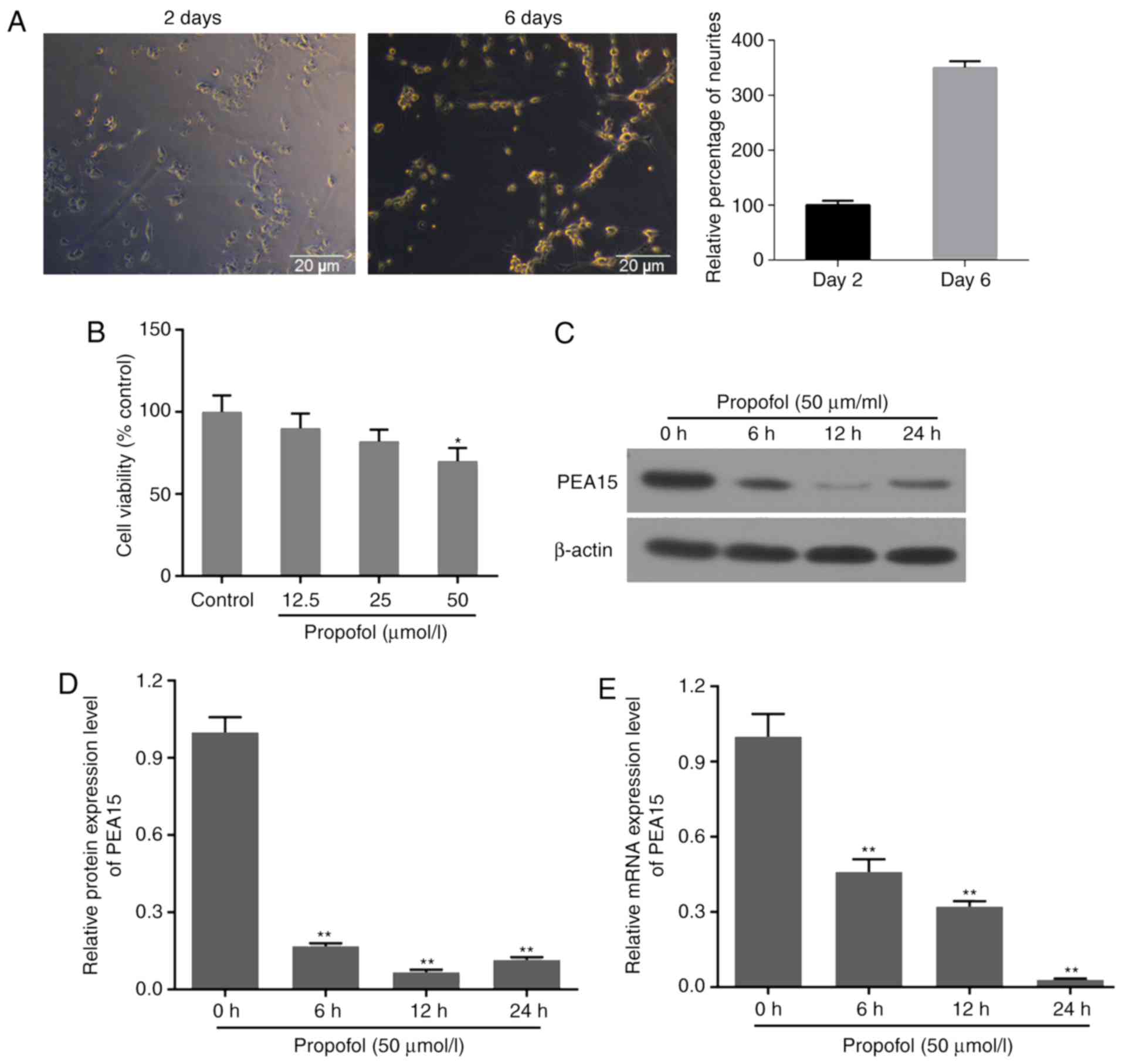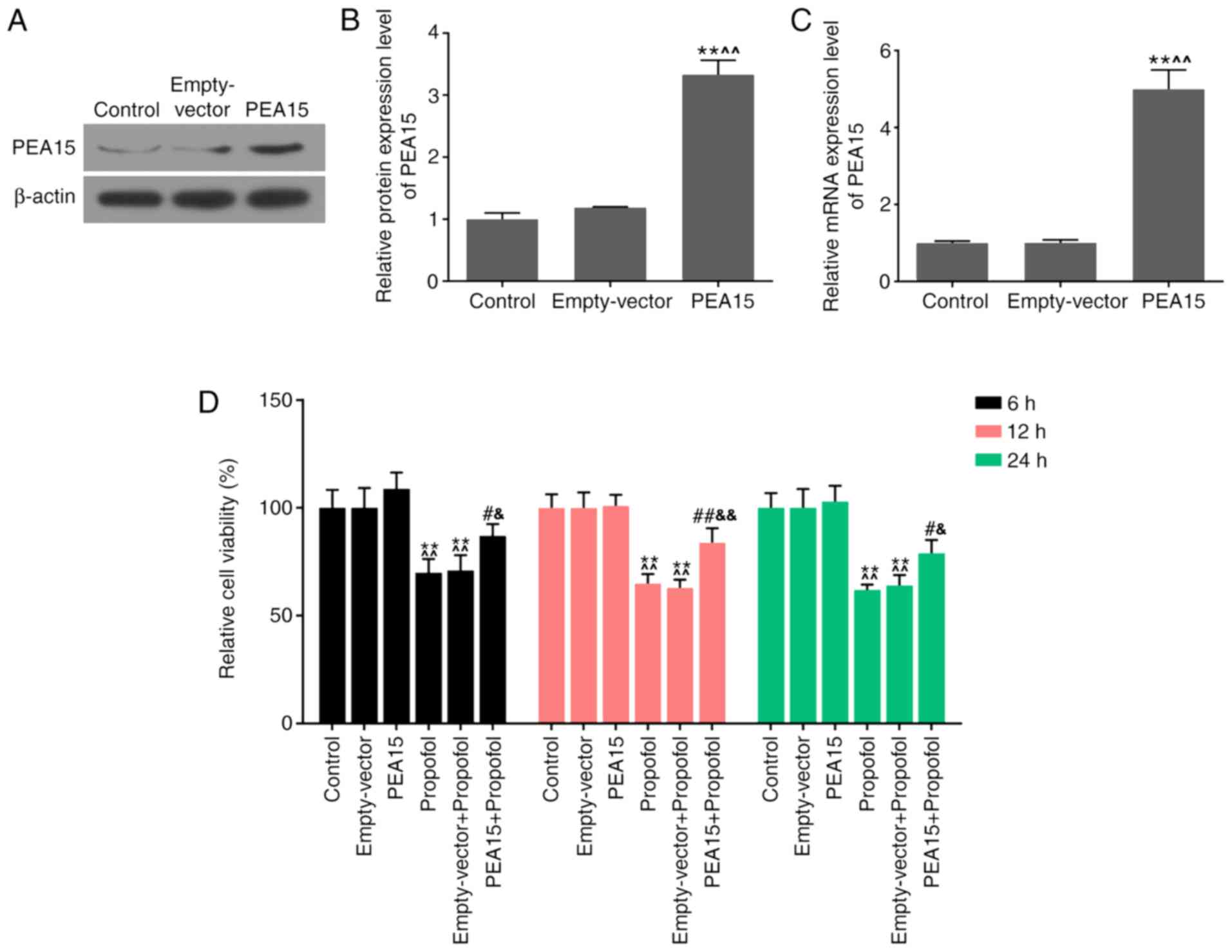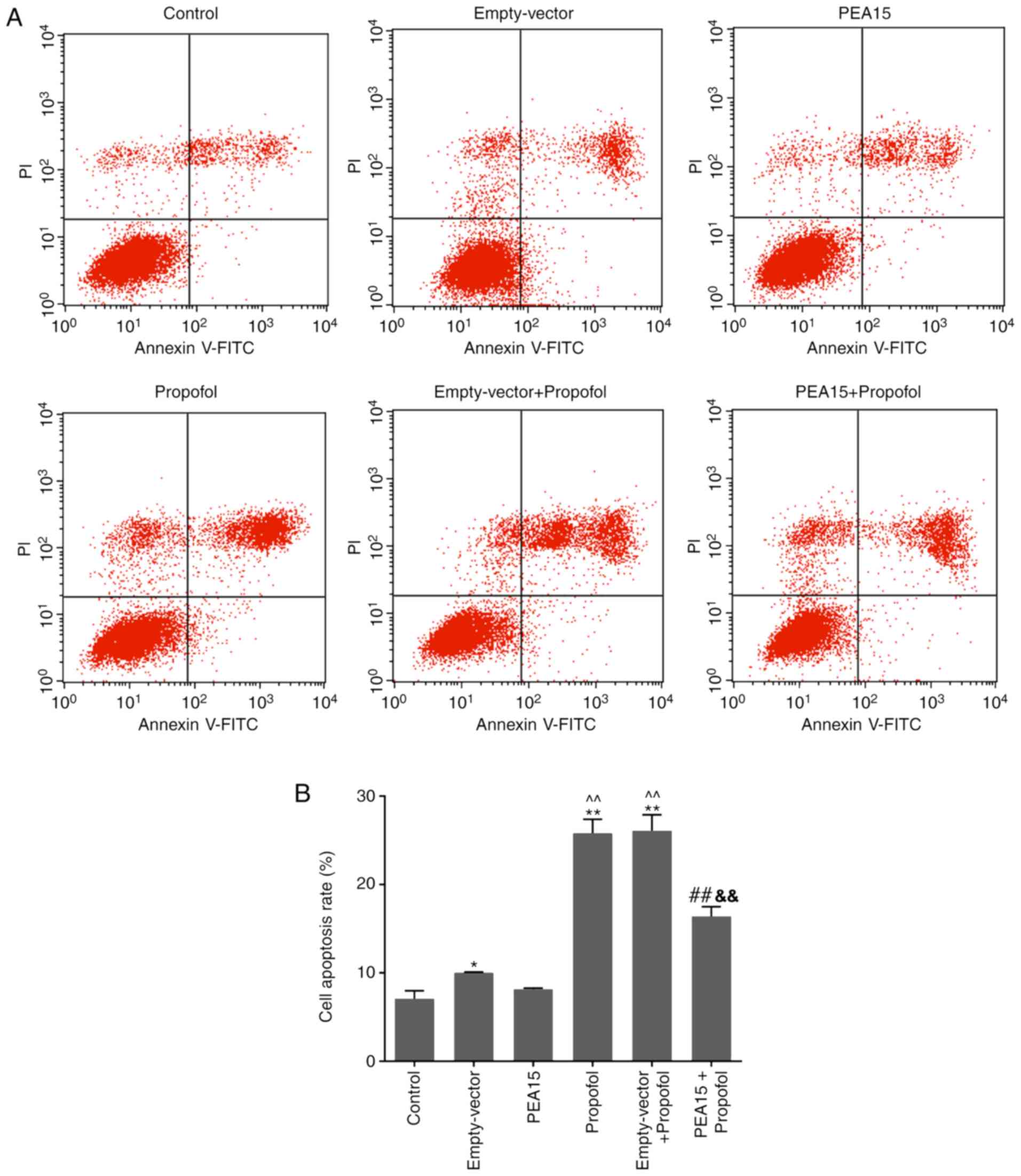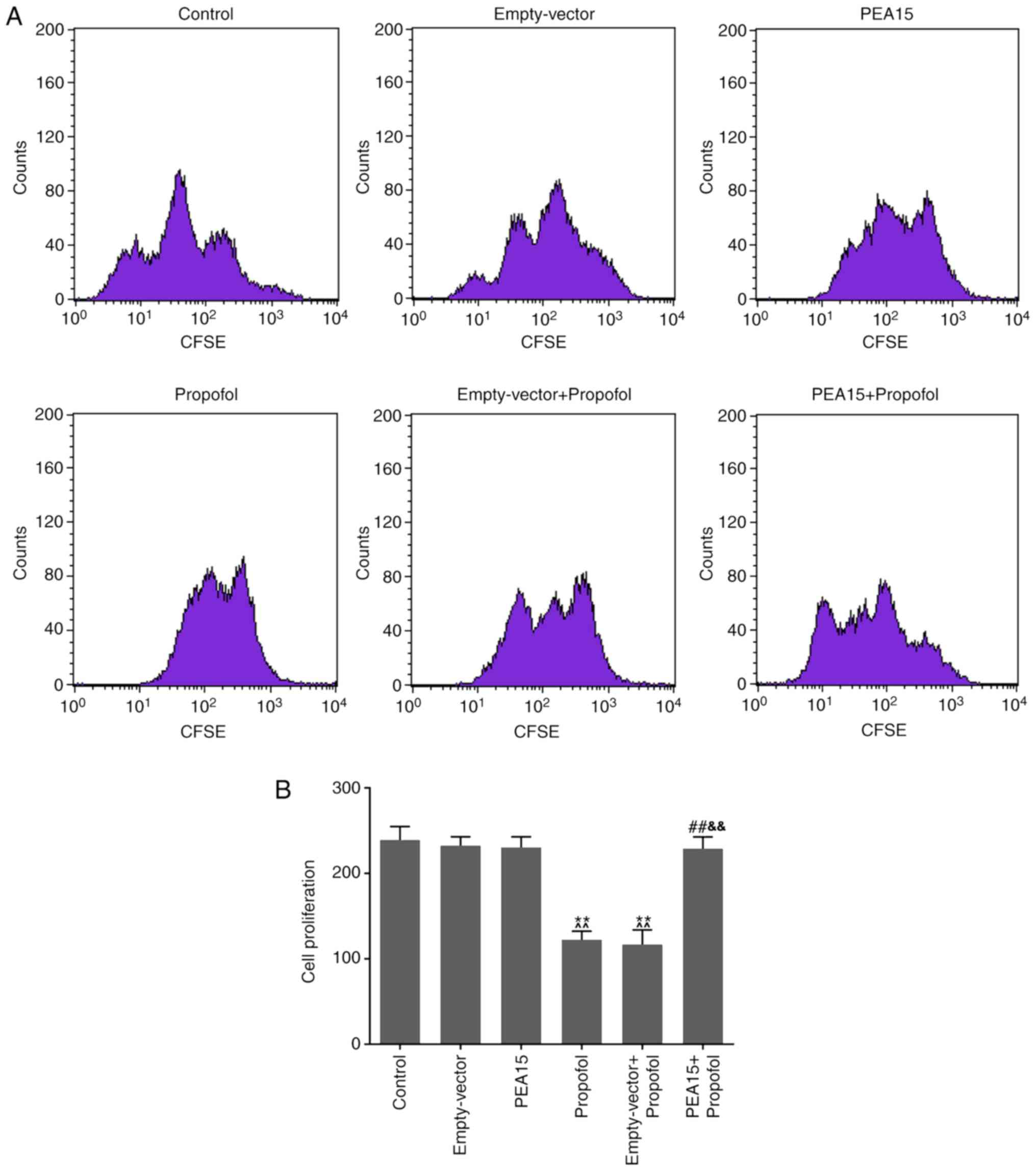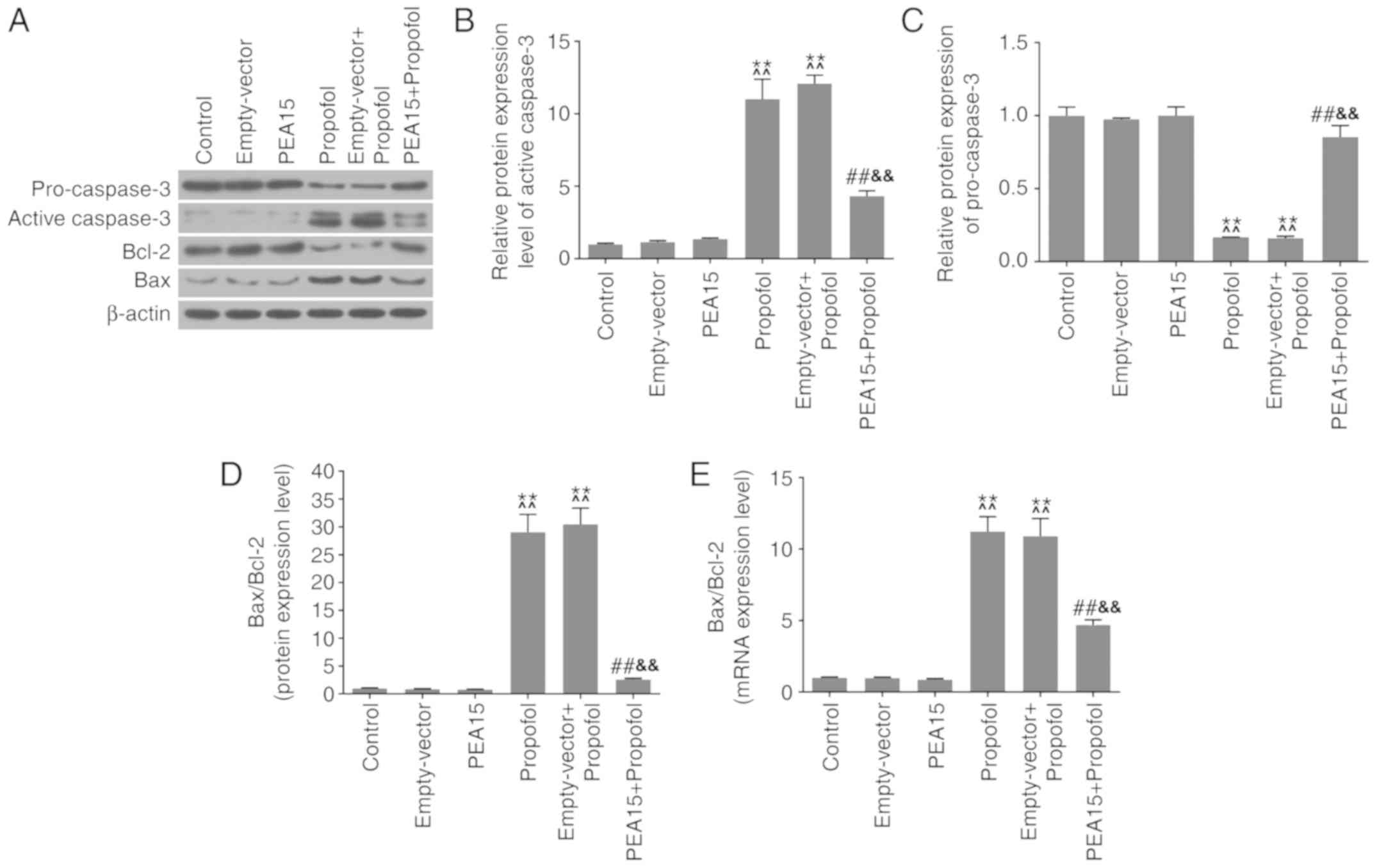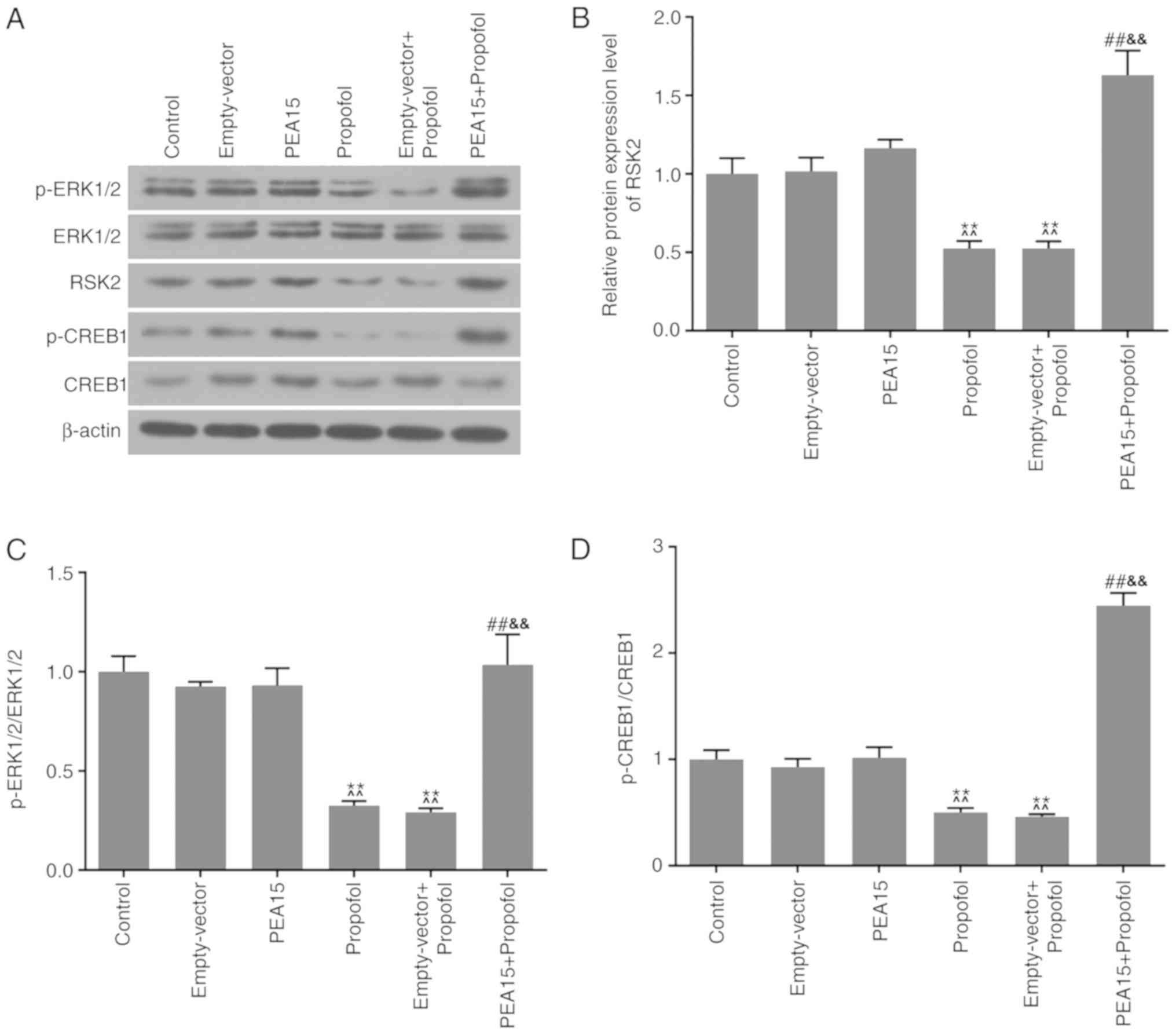|
1
|
King MR and Feldman JM: Optimal management
of apparatus dead space in the anesthetized infant. Paediatr
Anaesth. 27:1185–1192. 2017. View Article : Google Scholar : PubMed/NCBI
|
|
2
|
Kotwani MB and Malde AD: Comparison of
maintenance, emergence and recovery characteristics of sevoflurane
and desflurane in pediatric ambulatory surgery. J Anaesthesiol Clin
Pharmacol. 33:503–508. 2017.PubMed/NCBI
|
|
3
|
Wang CH, Luo J, Li J, Zhang JZ, Huang SY,
Shao W and Ma HS: Efficacy of inhalational sevoflurane anesthesia
induction on inhibiting the stress response to endotracheal
intubation in children with congenital heart disease. Eur Rev Med
Pharmacol Sci. 22:1113–1117. 2018.PubMed/NCBI
|
|
4
|
Chimelli L, Moura Pone S, Avvad-Portari E,
Farias Meira Vasconcelos Z, Araújo Zin A, Prado Cunha D, Raposo
Thompson N, Lopes Moreira ME, Wiley CA and da Silva Pone MV:
Persistence of zika virus after birth: Clinical, virological,
neuroimaging, and neuropathological documentation in a 5-month
infant with congenital zika syndrome. J Neuropathol Exp Neurol.
77:193–198. 2018. View Article : Google Scholar : PubMed/NCBI
|
|
5
|
Hannagan T, Nieder A, Viswanathan P and
Dehaene S: A random-matrix theory of the number sense. Philos Trans
R Soc Lond B Biol Sci. 373:201702532017. View Article : Google Scholar : PubMed/NCBI
|
|
6
|
Subedi L, Huang H, Pant A, Westgate PM,
Bada HS, Bauer JA, Giannone PJ and Sithisarn T: Plasma
brain-derived neurotrophic factor levels in newborn infants with
neonatal abstinence syndrome. Front Pediatr. 5:2382017. View Article : Google Scholar : PubMed/NCBI
|
|
7
|
Backeljauw B, Holland SK, Altaye M and
Loepke AW: Cognition and brain structure following early childhood
surgery with anesthesia. Pediatrics. 136:e1–12. 2015. View Article : Google Scholar : PubMed/NCBI
|
|
8
|
Sun L: Early childhood general anaesthesia
exposure and neurocognitive development. Br J Anaesth. 105 (Suppl
1):i61–i68. 2010. View Article : Google Scholar : PubMed/NCBI
|
|
9
|
Coleman K, Robertson ND, Dissen GA,
Neuringer MD, Martin LD, Cuzon Carlson VC, Kroenke C, Fair D and
Brambrink AM: Isoflurane anesthesia has long-term consequences on
motor and behavioral development in infant rhesus macaques.
Anesthesiology. 126:74–84. 2017. View Article : Google Scholar : PubMed/NCBI
|
|
10
|
El-Dib M and Soul JS: The use of
phenobarbital and other anti-seizure drugs in newborns. Semin Fetal
Neonatal Med. 22:321–327. 2017. View Article : Google Scholar : PubMed/NCBI
|
|
11
|
Hu L, Pan J, Zhang S, Yu J, He K, Shu S
and Wang R: Propofol in combination with remifentanil for cesarean
section: Placental transfer and effect on mothers and newborns at
different induction to delivery intervals. Taiwan J Obstet Gynecol.
56:521–526. 2017. View Article : Google Scholar : PubMed/NCBI
|
|
12
|
Razlevice I, Rugyte DC, Strumylaite L and
Macas A: Assessment of risk factors for cerebral oxygen
desaturation during neonatal and infant general anesthesia: An
observational, prospective study. BMC Anesthesiol. 16:1072016.
View Article : Google Scholar : PubMed/NCBI
|
|
13
|
Cattano D, Young C, Straiko MM and Olney
JW: Subanesthetic doses of propofol induce neuroapoptosis in the
infant mouse brain. Anesth Analg. 106:1712–1714. 2008. View Article : Google Scholar : PubMed/NCBI
|
|
14
|
Creeley C, Dikranian K, Dissen G, Martin
L, Olney J and Brambrink A: Propofol-induced apoptosis of neurones
and oligodendrocytes in fetal and neonatal rhesus macaque brain. Br
J Anaesth. 110 (Suppl 1):i29–i38. 2013. View Article : Google Scholar : PubMed/NCBI
|
|
15
|
Pearn ML, Hu Y, Niesman IR, Patel HH,
Drummond JC, Roth DM, Akassoglou K, Patel PM and Head BP: Propofol
neurotoxicity is mediated by p75 neurotrophin receptor activation.
Anesthesiology. 116:352–361. 2012. View Article : Google Scholar : PubMed/NCBI
|
|
16
|
Yu D, Jiang Y, Gao J, Liu B and Chen P:
Repeated exposure to propofol potentiates neuroapoptosis and
long-term behavioral deficits in neonatal rats. Neurosci Lett.
534:41–46. 2013. View Article : Google Scholar : PubMed/NCBI
|
|
17
|
Kahraman S, Zup SL, McCarthy MM and Fiskum
G: GABAergic mechanism of propofol toxicity in immature neurons. J
Neurosurg Anesthesiol. 20:233–240. 2008. View Article : Google Scholar : PubMed/NCBI
|
|
18
|
Sall JW, Stratmann G, Leong J, Woodward E
and Bickler PE: Propofol at clinically relevant concentrations
increases neuronal differentiation but is not toxic to hippocampal
neural precursor cells in vitro. Anesthesiology. 117:1080–1090.
2012. View Article : Google Scholar : PubMed/NCBI
|
|
19
|
Spahr-Schopfer I, Vutskits L, Toni N,
Buchs PA, Parisi L and Muller D: Differential neurotoxic effects of
propofol on dissociated cortical cells and organotypic hippocampal
cultures. Anesthesiology. 92:1408–1417. 2000. View Article : Google Scholar : PubMed/NCBI
|
|
20
|
Danziger N, Yokoyama M, Jay T, Cordier J,
Glowinski J and Chneiweiss H: Cellular expression, developmental
regulation, and phylogenic conservation of PEA-15, the astrocytic
major phosphoprotein and protein kinase C substrate. J Neurochem.
64:1016–1025. 1995. View Article : Google Scholar : PubMed/NCBI
|
|
21
|
Greig FH and Nixon GF: Phosphoprotein
enriched in astrocytes (PEA)-15: A potential therapeutic target in
multiple disease states. Pharmacol Ther. 143:265–274. 2014.
View Article : Google Scholar : PubMed/NCBI
|
|
22
|
Ahn EH, Kim DW, Shin MJ, Kim HR, Kim SM,
Woo SJ, Eom SA, Jo HS, Kim DS, Cho SW, et al: PEP-1-PEA-15 protects
against toxin-induced neuronal damage in a mouse model of
Parkinson's disease. Biochim Biophys Acta. 1840:1686–1700. 2014.
View Article : Google Scholar : PubMed/NCBI
|
|
23
|
Greig FH, Kennedy S, Gibson G, Ramos JW
and Nixon GF: PEA-15 (Phosphoprotein Enriched in Astrocytes 15) is
a protective mediator in the vasculature and is regulated during
neointimal hyperplasia. J Am Heart Assoc. 6:e0069362017. View Article : Google Scholar : PubMed/NCBI
|
|
24
|
Mohammed HN, Pickard MR and
Mourtada-Maarabouni M: The protein phosphatase 4-PEA15 axis
regulates the survival of breast cancer cells. Cell Signal.
28:1389–1400. 2016. View Article : Google Scholar : PubMed/NCBI
|
|
25
|
Sung JH and Koh PO: Hyperglycemia
aggravates decreases of PEA-15 and its two phosphorylated forms in
cerebral ischemia. J Vet Med Sci. 79:654–660. 2017. View Article : Google Scholar : PubMed/NCBI
|
|
26
|
Wei Y: On the quest of cellular functions
of PEA-15 and the therapeutic opportunities. Pharmaceuticals
(Basel). 8:455–473. 2015. View Article : Google Scholar : PubMed/NCBI
|
|
27
|
Huang JY, Wang K, Vermehren-Schmaedick A,
Adelman JP and Cohen MS: PARP6 is a regulator of hippocampal
dendritic morphogenesis. Sci Rep. 6:185122016. View Article : Google Scholar : PubMed/NCBI
|
|
28
|
Tang JS, Xie BX, Bian XL, Xue Y, Wei NN,
Zhou JH, Hao YC, Li G, Zhang LR and Wang KW: Identification and in
vitro pharmacological characterization of a novel and selective α7
nicotinic acetylcholine receptor agonist, Br-IQ17B. Acta Pharmacol
Sin. 36:800–812. 2015. View Article : Google Scholar : PubMed/NCBI
|
|
29
|
Hsu HT, Tseng YT, Hsu YY, Cheng KI, Chou
SH and Lo YC: Propofol attenuates lipopolysaccharide-induced
reactive oxygen species production through activation of Nrf2/GSH
and suppression of NADPH oxidase in human alveolar epithelial
cells. Inflammation. 38:415–423. 2015. View Article : Google Scholar : PubMed/NCBI
|
|
30
|
Xia JH, Shi XY, Xu ZD, Liu G and Wang YH:
In vitro effects of propofol on apoptosis and Bax expression
induced by TNF-α in mouse spinal cord neurons. Acad J Sec Military
Med Univ. 27:169–172. 2006.
|
|
31
|
Livak KJ and Schmittgen TD: Analysis of
relative gene expression data using real-time quantitative PCR and
the 2(-Delta Delta C(T)) method. Methods. 25:402–408. 2001.
View Article : Google Scholar : PubMed/NCBI
|
|
32
|
Facci L and Skaper SD: Culture of rodent
cortical, hippocampal, and striatal neurons. Methods Mol Biol.
1727:39–47. 2018. View Article : Google Scholar : PubMed/NCBI
|
|
33
|
Rivera-Carvantes MC, Jarero-Basulto JJ,
Feria-Velasco AI, Beas-Zárate C, Navarro-Meza M, González-López MB,
Gudiño-Cabrera G and García-Rodríguez JC: Changes in the expression
level of MAPK pathway components induced by monosodium
glutamate-administration produce neuronal death in the hippocampus
from neonatal rats. Neuroscience. 365:57–69. 2017. View Article : Google Scholar : PubMed/NCBI
|
|
34
|
Eibl JK, Strasser BC and Ross GM:
Structural, biological, and pharmacological strategies for the
inhibition of nerve growth factor. Neurochem Int. 61:1266–1275.
2012. View Article : Google Scholar : PubMed/NCBI
|
|
35
|
Liang C, Du F, Cang J and Xue Z: Pink1
attenuates propofol-induced apoptosis and oxidative stress in
developing neurons. J Anesth. 32:62–69. 2018. View Article : Google Scholar : PubMed/NCBI
|
|
36
|
Monni L, Ghezzi F, Corsini S and Nistri A:
Neurotoxicity of propofol on rat hypoglossal motoneurons in vitro.
Neurosci Lett. 655:95–100. 2017. View Article : Google Scholar : PubMed/NCBI
|
|
37
|
Yan Y, Qiao S, Kikuchi C, Zaja I, Logan S,
Jiang C, Arzua T and Bai X: Propofol induces apoptosis of neurons
but not astrocytes, oligodendrocytes, or neural stem cells in the
neonatal mouse hippocampus. Brain Sci. 7:E1302017. View Article : Google Scholar : PubMed/NCBI
|
|
38
|
Liu Y, Yan Y, Inagaki Y, Logan S, Bosnjak
ZJ and Bai X: Insufficient astrocyte-derived brain-derived
neurotrophic factor contributes to propofol-induced neuron death
through Akt/glycogen synthase kinase 3β/mitochondrial fission
pathway. Anesth Analg. 125:241–254. 2017. View Article : Google Scholar : PubMed/NCBI
|
|
39
|
Lv J, Wei Y, Chen Y, Zhang X, Gong Z,
Jiang Y, Gong Q, Zhou L, Wang H and Xie Y: Dexmedetomidine
attenuates propofol-induce neuroapoptosis partly via the activation
of the PI3k/Akt/GSK3β pathway in the hippocampus of neonatal rats.
Environ Toxicol Pharmacol. 52:121–128. 2017. View Article : Google Scholar : PubMed/NCBI
|
|
40
|
Huang Q, Voloudakis G, Ren Y, Yoon Y,
Zhang E, Kajiwara Y, Shao Z, Xuan Z, Lebedev D, Georgakopoulos A
and Robakis NK: Presenilin1/γ-secretase protects neurons from
glucose deprivation-induced death by regulating miR-212 and PEA15.
FASEB J. 32:243–253. 2018. View Article : Google Scholar : PubMed/NCBI
|
|
41
|
Shahin S, Banerjee S, Swarup V, Singh SP
and Chaturvedi CM: From the cover: 2.45-GHz microwave radiation
impairs hippocampal learning and spatial memory: Involvement of
local stress mechanism-induced suppression of iGluR/ERK/CREB
signaling. Toxicol Sci. 161:349–374. 2018. View Article : Google Scholar : PubMed/NCBI
|
|
42
|
Yi LT, Li J, Liu BB, Luo L, Liu Q and Geng
D: BDNF-ERK-CREB signalling mediates the role of miR-132 in the
regulation of the effects of oleanolic acid in male mice. J
Psychiatry Neurosci. 39:348–359. 2014. View Article : Google Scholar : PubMed/NCBI
|
|
43
|
Zuo H, Lin T, Wang D, Peng R, Wang S, Gao
Y, Xu X, Zhao L, Wang S and Su Z: RKIP regulates neural cell
apoptosis induced by exposure to microwave radiation partly through
the MEK/ERK/CREB pathway. Mol Neurobiol. 51:1520–1529. 2015.
View Article : Google Scholar : PubMed/NCBI
|
|
44
|
Kaphzan H, Doron G and Rosenblum K:
Co-application of NMDA and dopamine-induced rapid translation of
RSK2 in the mature hippocampus. J Neurochem. 103:388–399.
2007.PubMed/NCBI
|
|
45
|
Kozinn J, Mao L, Arora A, Yang L, Fibuch
EE and Wang JQ: Inhibition of glutamatergic activation of
extracellular signal-regulated protein kinases in hippocampal
neurons by the intravenous anesthetic propofol. Anesthesiology.
105:1182–1191. 2006. View Article : Google Scholar : PubMed/NCBI
|















